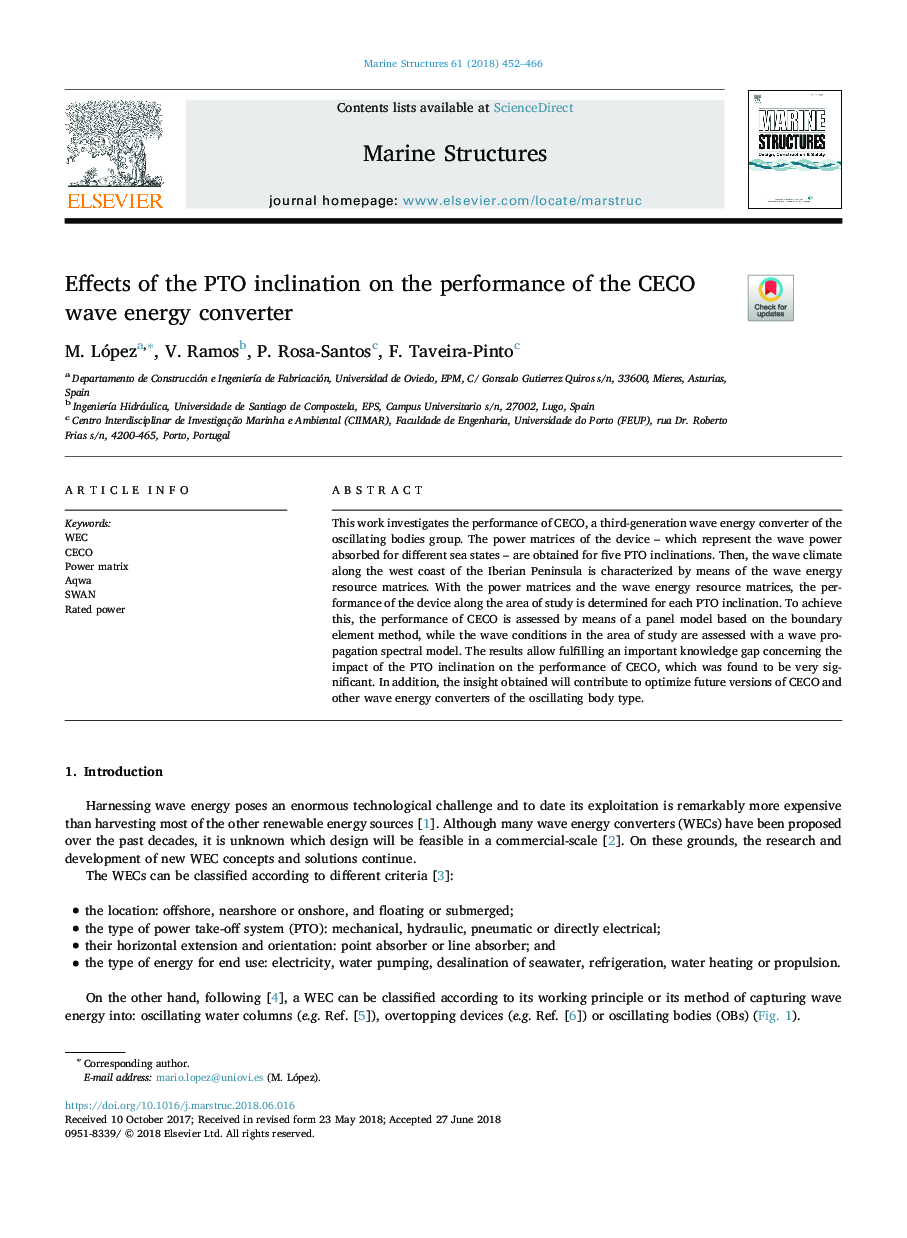| Article ID | Journal | Published Year | Pages | File Type |
|---|---|---|---|---|
| 6757916 | Marine Structures | 2018 | 15 Pages |
Abstract
This work investigates the performance of CECO, a third-generation wave energy converter of the oscillating bodies group. The power matrices of the device - which represent the wave power absorbed for different sea states - are obtained for five PTO inclinations. Then, the wave climate along the west coast of the Iberian Peninsula is characterized by means of the wave energy resource matrices. With the power matrices and the wave energy resource matrices, the performance of the device along the area of study is determined for each PTO inclination. To achieve this, the performance of CECO is assessed by means of a panel model based on the boundary element method, while the wave conditions in the area of study are assessed with a wave propagation spectral model. The results allow fulfilling an important knowledge gap concerning the impact of the PTO inclination on the performance of CECO, which was found to be very significant. In addition, the insight obtained will contribute to optimize future versions of CECO and other wave energy converters of the oscillating body type.
Keywords
Related Topics
Physical Sciences and Engineering
Engineering
Civil and Structural Engineering
Authors
M. López, V. Ramos, P. Rosa-Santos, F. Taveira-Pinto,
